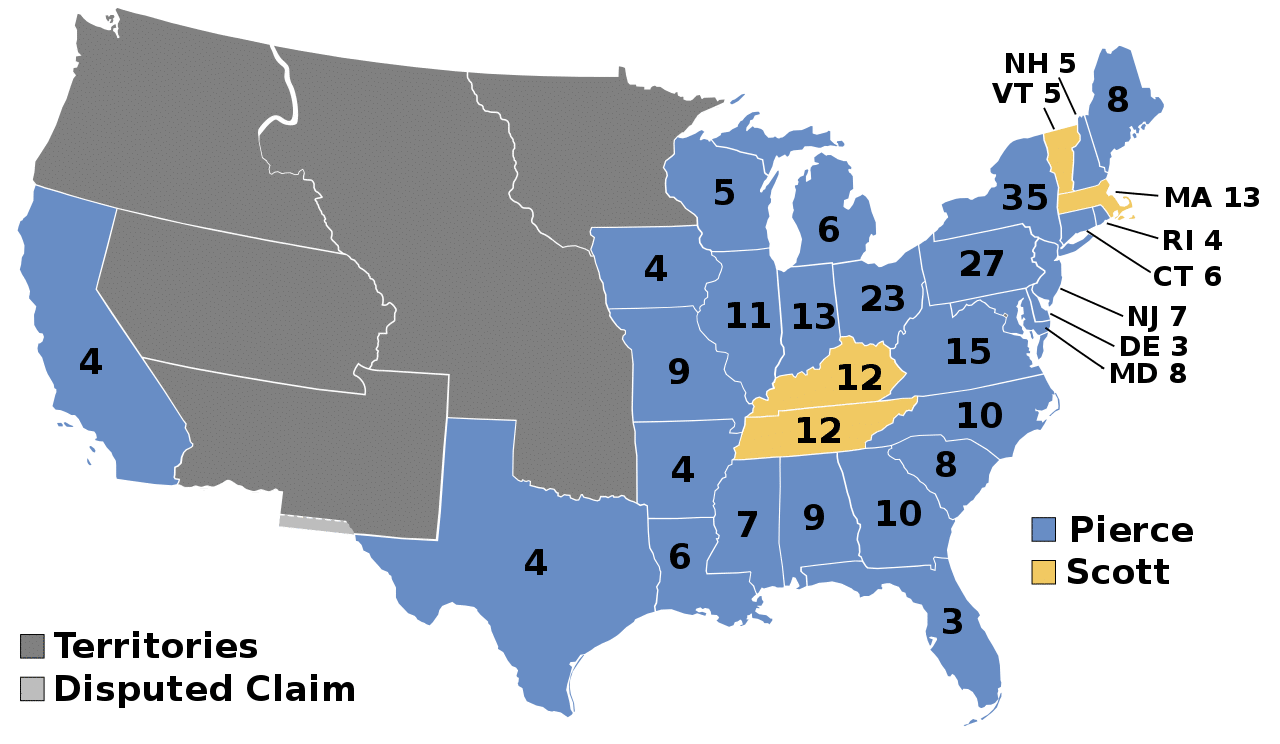Tensions continued to grow over the issue of slavery and states' rights. With the Compromise of 1850 kicking the can a little further down the road, it seemed as if relations were somewhat better but still unsteady.

The Whigs were beginning to decline. Zachary Taylor showed promise as a strong leader, but his untimely death left Millard Fillmore as president, and he was ill-equipped for the job.
The Democratic party was whole. After the Compromise of 1850, they seemed to unify somewhat and were ready to move forward with their candidate.
The Free Soil Party was still the largest third party in the nation but had been diminished. Many of the Democrats had gone back to their party, as had the Whigs.
- Whigs: Winfield Scott and Vice President William A. Graham
- Democrats: Franklin Pierce and Vice President William R. King
- Free Soil Party: Josh P. Hale and Vice President George Washington Julian.
Platforms
There were no discernable differences between the Whig and Democratic Party. Both ran on similar issues, and both were vague about slavery. The election would turn into a personality contest.
Winfield Scott was well-known for his exploits in the War of 1812 and the Mexican War.
Franklin Pierce was well-spoken, young, and attractive during that time period.
The Free Soil Party shared many of the economic convictions of the other parties but was against the expansion of slavery.
Outcome
Franklin Pierce won this election in a landslide, but the reality is that the public did not like either candidate.
Daniel Webster received a substantial amount of votes in Georgia and Massachusetts, and he was dead, which shows the public disinterest in both candidates.
However, this election would change the political landscape. The Whigs collapsed, and this would be the last time that the Democratic candidate won many states in the North.
A new party began to form, the Republicans. They would form from the Free Soil Party and the Whigs as well as anti-slavery Democrats. They would first begin their rise in the Election of 1856 when John C. Fremont was nominated.
